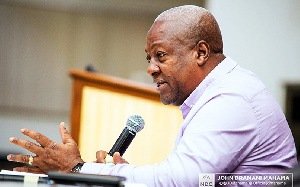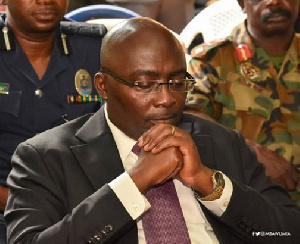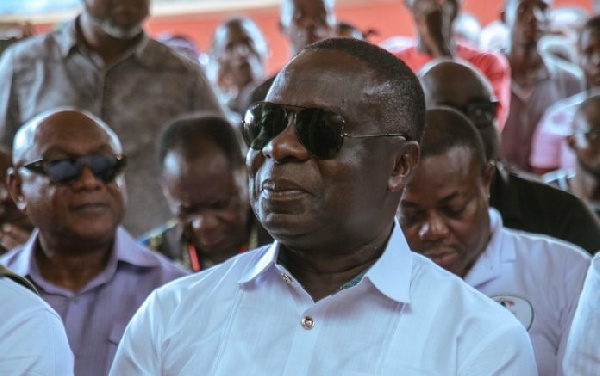Will NDC become the Majority in Parliament when it resumes? – Kwaku Azar explains

The prospect of Ghana’s Parliament shifting leadership, with the opposition National Democratic Congress (NDC) becoming the Majority Caucus and the ruling New Patriotic Party (NPP) transitioning to the Minority Caucus, is becoming more plausible.
Members of the Minority Caucus, including former Minority Leader and Member of Parliament for Tamale Central, Haruna Iddrisu, have signaled that their party could form the Majority Caucus when Parliament reconvenes.
This possibility arises as two members of the NPP’s Majority Caucus have filed nominations to contest the 2024 parliamentary elections as independent candidates.
But will this development reduce the number of NPP MPs in the Majority Caucus, and is there a precedent for this situation?
US-based Ghanaian lawyer and scholar, Professor Stephen Kwaku Asare, widely known as Kwaku Azar, has provided an explanation of what is likely to happen when Parliament resumes.
In a Facebook post shared on October 13, 2024, Kwaku Azar highlighted that the Second Deputy Speaker and independent MP for Fomena, Andrew Amoako Asiamah, along with two NPP MPs—Agona West MP Cynthia Morrison and Suhum MP Kwadjo Asante—filing to run as independent candidates, could leave sufficient ground for the ruling party to lose its majority status in Parliament.
However, Kwaku Azar raised concerns about the necessary conditions for the NPP to lose its majority.
His primary concern centers on whether the Speaker of Parliament will declare the three seats in contention vacant, as was done in a similar case in the past.
Precedent:
In 2020, the then-Speaker of Parliament, Professor Aaron Mike Ocquaye, declared the Fomena Constituency seat vacant after Andrew Amoako Asiamah filed to contest the 2020 parliamentary elections as an independent candidate.
Kwaku Azar contends that Professor Ocquaye’s decision at the time was incorrect and argues that the current Speaker, Alban Bagbin, should avoid following that precedent and instead apply the law properly.
“Some point to Speaker Ocquaye’s ruling in the 7th Parliament when the current Second Deputy Speaker, then an NPP MP, filed as an independent. The Speaker ruled that the Fomena MP had vacated his seat.
“At the time, I argued that Speaker Ocquaye’s ruling was incorrect. The NPP should have stood on principle and rejected the ruling, but instead, they either followed it or orchestrated the situation. I hope the current Speaker does not follow Ocquaye’s precedent and instead applies the law properly,” he wrote.
What the 1992 Constitution says:
Kwaku Azar also indicated that Article 97 of the Constitution was misinterpreted during the removal of Asiamah from Parliament.
According to him, the article does not give the Speaker of Parliament any authority to declare the seats of parliamentarians who cross the carpet vacant. He maintained that only the High Court has the power to declare seats vacant in such circumstances.
Here is his full explanation on Article 97:
Article 97(1)(g) & (h) state that “a member of Parliament shall vacate his seat in Parliament if he leaves the party of which he was a member at the time of his election to Parliament to join another party or seeks to remain in Parliament as an independent member; or if he was elected a member of Parliament as an independent candidate and joins a political party.”
The law means that:
1. An MP must vacate their seat if they switch political parties during their term or if they attempt to continue serving as an independent MP after having been elected on a party ticket. This is designed to prevent party-hopping or political defection within the same parliamentary session.
2. Similarly, an MP elected as an independent candidate must vacate their seat if they join a political party during their term. This ensures that an independent MP does not undermine their independent mandate by aligning with a political party after being elected.
The law simply prohibits carpet crossing within the same Parliament and does not concern an MP’s intentions for the next Parliament. Its purpose is to maintain political stability and prevent opportunistic shifting of allegiances by MPs during their term.
It aims to uphold the integrity of the electoral mandate, ensuring that MPs remain aligned with the political platform or independent status under which they were elected, avoiding disruption to party dynamics or parliamentary representation.
The law reflects our history, where the opposition has been weakened by the government’s strategic poaching of MPs.
Further, only the High Court, not the Speaker, MPs, or political parties can declare a parliamentary seat vacant. Thus, such declarations are subject to judicial review.
We are tired of political gamesmanship distorting our laws. Let’s do the right things at all times, not just go for short-term partisan gains!
Source: www.ghanaweb.com





